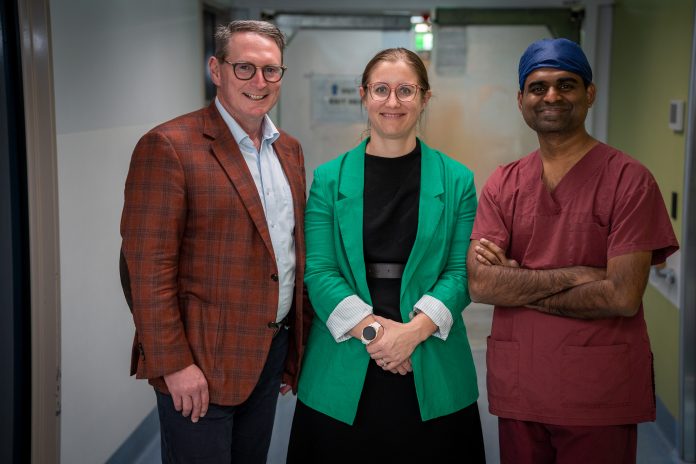The Gastroenterological Society of Australia (GESA) has launched the Regional, Remote and Indigenous Outreach program in Alice Springs.
The goal of the program is to advance gastroenterological and liver healthcare in remote areas of Australia. The outreach program is designed to foster an enduring relationship between NT Health and GESA, bridging the distance between Australia’s most renowned specialists.
“The Outreach program in Alice Springs this week demonstrates GESA’s commitment to gastrointestinal and liver health in regional and remote Australia,” says GESA President, Professor Benedict Devereaux.
“By bringing Australia’s experts to Alice Springs we offer support to our medical and nursing colleagues who provide a great service to their patients.
“In addition to establishing enduring clinical and research links, our expectation is that over time more specialists will commit long-term to practise in regional and remote centres.
“One of our main focus points this week is endoscopic procedures. We are providing continued professional development for local gastroenterologists and surgeon proceduralists.
“This is essential as surgeons and gastroenterologists share a common goal of excellence in patient care.”
This week, Alice Springs is buzzing with comprehensive, onsite practical and theory-based training sessions.
The program’s focus is on education and mentoring, aiming to cultivate a symbiotic relationship that will elevate the standard of healthcare in this regional centre and the remote communities that it services.
The outreach program is committed to several key objectives including:
- Increasing access to gastroenterologists and hepatologists.
- Reducing the burden of gastroenterological and liver disease.
- Decreasing preventable hospitalisations.
- Providing enhanced support for specialist nurses and allied health professionals for improved management of gastroenterological diseases.
The initiatives are designed to enhance the healthcare of Territorians and improve gastrointestinal and liver care in the NT.
“The success and impact of GESA’s Regional, Remote and Indigenous initiative incorporating the RRI Fellowship, Visiting Professor and Outreach programs will be dependent on a sustained partnership to confront the healthcare challenges encountered in the Northern Territory,” says Mr Devereaux.
“These challenges are the result of vast distances, climate events and a large Indigenous population which is impacted by cultural, linguistic and social barriers.
“The challenges are significant and affecting positive change will take time. In working together, GESA and NT Health will find solutions which can be adapted in regional and remote communities throughout the country.”
For more information, visit: gesa.org.au.










